Debt free living is a lifestyle that is full of homestead abundance. Take action to become debt-free, flip the switch in your mind and begin to see abundance in your life.
Debt-free living leads to more Homestead Abundance
Get out of debt faster. Living debt-free is the first principle of the Homestead Life. Living with debt sucks the abundance out of your mind. Debt is like a cloud that overshadows all the good that comes into your life. It makes you overlook your blessings. It makes you focus on your lack of money, instead of on the good things in your life that money can’t buy.
Decide today to get out of debt and stay out of debt. Be aware that there are 10 Ways the Poverty Mindset Might be Keeping You Homestead-Poor. Understanding the way you feel about money is the first step to using it for better purposes. You can still be generously frugal as you are working on removing debt from your life.
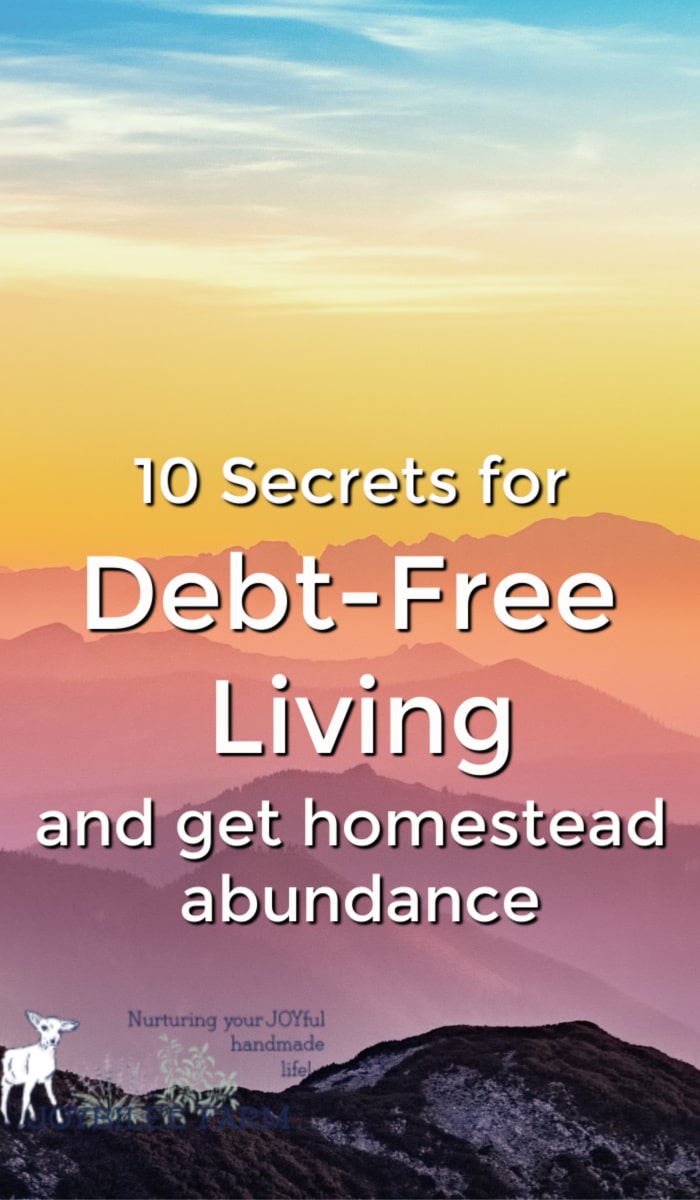
1. Take a hard, analytical look at your debt
If you need to, get help from your Pastor, Rabbi, a financial advisor, or debt counselor. Analyze which part of the debt is student loans, which part is consumer debt, and which part is necessary to purchase your home, or allow you to go to work. Begin eliminating consumer debt, by stopping the outflow.
My friends put their credit cards in a can of water in the freezer, so that they still had them if they needed them, but they would have to hunt for them and thaw them out to use them. Putting the cards in a hard to reach place helped them avoid impulse shopping.
You can begin laying the financial foundation for your homestead as you take that hard look and implement changes.
2. Create a budget – make it a livable budget
Don’t go for austerity measures to pay off your debt, but forego a few luxuries so that you can put the cash saved toward your debt. Austerity measures are like going on a fast. When you fast, its hard to think of anything else but food, and you feel deprived, if your family doesn’t fast with you.
Austerity measures are like that, too. They remind you of what you can’t have instead of giving you a positive goal – being debt free – to work toward. You need to change your thinking to win the debt-free game.
Related article: A Dozen Ways to be more resilient on a budget
If you still feel that there is too little money for all the spending requirements of your family, it’s time to take a look at ways to cut some fat from the budget. Learn to make your own laundry soap and wool dryer balls (bonus: they are healthier and eco-friendly), use herbs for house cleaning, and implement ways to stay warm without turning up the heat. These homemade items are always less expensive in the long run.
3. Pay off one of your loans first, by putting the extra savings into that one loan
Some experts suggest paying off the highest interest loan first. Some experts recommend paying off the smallest loan first so that you have quick success in your efforts. If you pay off your highest interest loan first, you will be paying less in interest and more toward principle. This is what we did.
Figure out what will give you the biggest financial boost.
If you pay off your smallest loan first, you have immediate success and are more motivated to stay with the budget. Either way, once one loan is paid off, take the money that you were paying toward that loan and apply it to the next loan in your program, along with the regular payment due. You won’t miss the money, and it will help you pay down the loan faster.
Here’s how the Debt Snowball Method works.
4. When you pay off one loan, celebrate your success
Take the family out to dinner or have a fast meal at home, or purchase something on your need list, that you’ve been waiting for – paying cash. This celebration reinforces your success and removes any feelings of poverty or lack from your mind.
Similar to taking a day of rest, celebrating the small victories is a significant part of living the debt free, homestead abundance lifestyle.
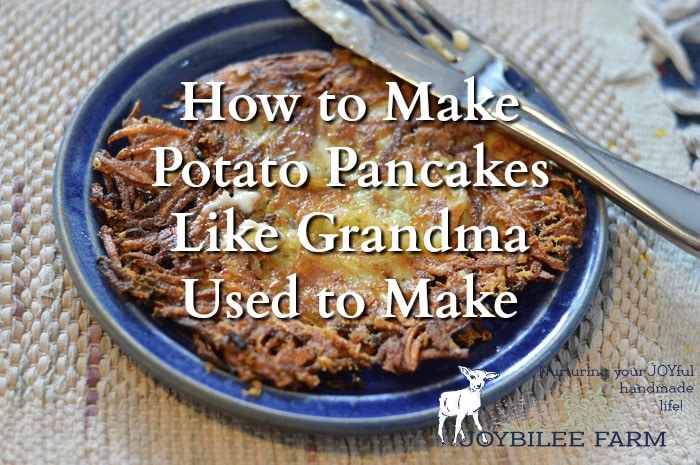
5. Your food pantry can help you pay down your debt
Your pantry staples like rice, beans, and other staples are usually bought in bulk, and so cost less than expensive processed foods. By using your staples while you are trying to pay down your debt, you save money on your groceries. You eat simpler, healthier meals, and you retrain your mind to use what you have, instead of running to the store for what you don’t have.
It is important to remember to replenish what you use periodically, by buying in bulk or in case lots. This reinforces the cycle of healthier meals. Here are a few suggestions:
-
-
- Make potato pancakes
- Learn how to cook rice and whole grains
- Make home-baked Challah bread, whole wheat bread, or pita bread.
- Make bone broth with leftovers
-
6. Consider eliminating the second outside income
Eliminating that second income seems counter-intuitive. Obviously, if you are in debt you need more money, right? But for most folks, with children at home that require babysitters, paid work for the primary caregiver isn’t profitable. When you consider the cost of the second car, the work wardrobe, babysitting costs, and restaurant or convenience meals, the second job can be very costly.
Often the Mom is working for only a couple bucks an hour after the expenses of working are removed. Consider whether it may be better, in your circumstances, for Mom to work at home for her family. This eliminates expenses from the budget with her labor, rather than wasting her energy working outside the home.
As a SAHM, homeschooling my three children, I made a game out of saving money by producing the things at home that I used to buy – laundry detergent, hand soap, window cleaner, bathroom cleaner, bread, yogourt and cheese, sausages and meat, even knitting yarn and clothing. While every effort doesn’t save you money – it does give you more control and more satisfaction – more Homestead abundance.
There are many ways to make money on the farm and use the abundance of your land. We’ve crafted willow baskets from trees on our property, used foraged pine needles for basket making, learned how to take shareable photography and started an herb business.
7. Consider downsizing
If you are living in a large home and have a big mortgage, consider selling your home and buying a smaller house that you can pay off completely or perhaps changing your neighborhood so that you can live debt-free.
Want to stay in your home? There are other ways to implement downsizing by simplifying your needs. As a bonus, many of these simple living ideas are also environmentally friendly.
- Ditch the paper towels and go unpaper
- Make your own tooth powder
- Make homemade deodorant
- Give simple gifts that won’t increase your debt
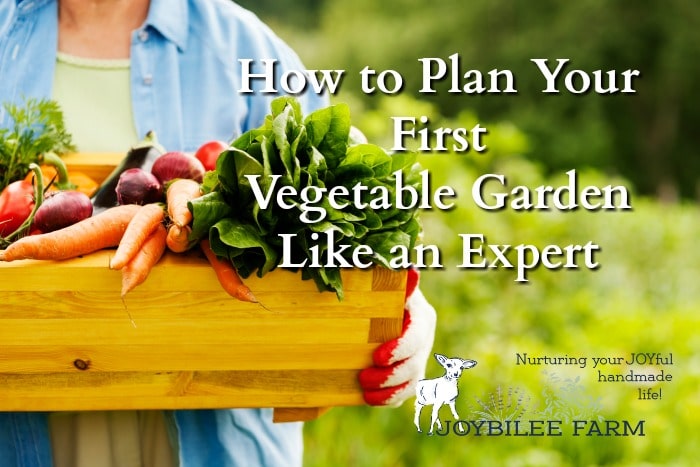
8. Grow some of your own food
Grow a garden, start some sprouts in a jar on the counter, put some lettuce or pea shoots in a pot in a sunny window or apartment balcony. Don’t wait till you move to a large piece of property before you start to learn to grow things. Start seeds today – even in winter. Every season that you can garden, you will learn more.
Gardening books are only the beginning of learning to grow your own food. You’ll gain experience as you start growing different fruit trees, tomato varieties, and even mushrooms. This will teach you more in a season than the books can show you. And every meal that you can grow yourself is something that you don’t have to buy from the store.
9. Make do with what you have
One of the ways that we get out of debt and remain there is by making do with what we have. This does not imply that we live in with lack in any way. We purchase quality tools and then keep the tools in tip-top shape so that they will last.
We use willow that grows on our homestead for making artist charcoal and char cloth firestarters. We properly season our lumber for wood stove efficiency, save money by making gift bags and turn old socks into cute gifts.
Looking for ways to reuse items is a smart way to keep from spending reduce your debt
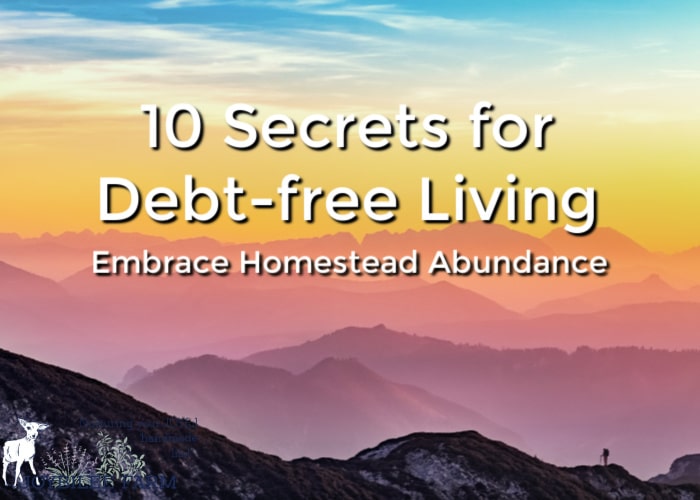
10. Take control of your healthcare
Let’s face it, over the counter medications are expensive. We have discovered that there are dozens of ways to use proven herbal methods to treat common ailments that might otherwise send you to the local pharmacy. Gripe water soothes a colicky baby’s tummy, peppermint and lavender salve reduces headache pain, and mullein flower oil eases ear infection pain.
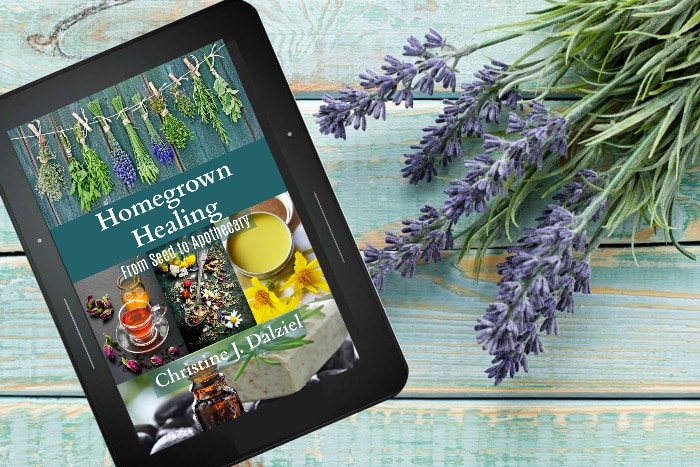
Our Homegrown Healing From Seed to Apothecary eBook covers 30 plants, recommended by professional herbalists, that can be grown in the temperate zone. Initial garden preparation, garden design, and harvesting tips lead the novice herbalist into early success. Perhaps you are interested in gaining herbal knowledge to benefit your family!
This is just the beginning of making a choice to live debt-free. The debt-free lifestyle is full of homestead abundance. When you take action to become debt-free, you flip the switch in your mind and you begin to see abundance in your life. Instead of the lack of funds that debt focuses on, you start to see new lavish blessings every day.



Leave a Reply